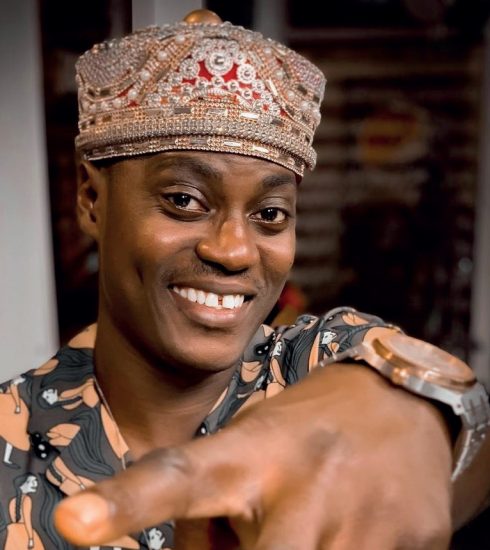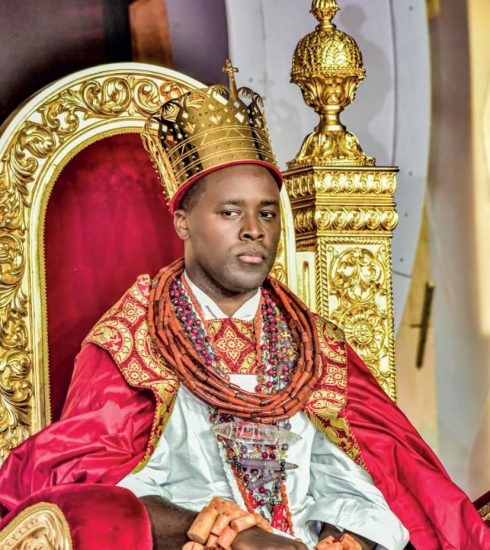Hilda Baci Cooks Her Way To Global Stardom
Imagine Nigeria in a FIFA World Cup final. Now, very few events are able to grab the country’s attention the way that would have. In await-a-minute-we-are-on-the-global-stage-again moment, Nigerians rallied around a course which, just like sports, is a testament to how blessed we are as a country to have this many resources, young people. Just under a couple of months since the sham elections put a disconcerting strain on the fabric that pulls us together as one regardless of ethnicity, with still some tension in the air as the allegedly cooked results are being challenged in court, multi-talented chef and latest Guinness World Record holder, Hilda Bassey Effiong, professionally known as Hilda Baci, brought the country together exactly how a world cup final would have. Although cooking and football probably sound like a distant comparison and heavily gendered activities, Hilda’s cook-a-thon featured every possible element you would find in the event of a hypothetical world cup final—a phone call from the Vice President, Prof. Yemi Osinbajo, a visit from the State Governor, Babajide Sanwo-Olu, and a resounding echo of support from Nigerians, both online and a teeming crowd of well-wishers and some of the country’s biggest celebrities including Tiwa Savage, Adesuwa and Banky W, Teni, Enioluwa Adeoluwa, Charles Okocha, Pastor Bolaji Idowu and fellow record-breaker, Kaffy to name a few. The undisputed talk of the town since the past fortnight, Hilda Baci had done something no other person had done in the world. The sensational chef broke and set a new record for the longest individual cooking marathon in the world by cooking for 100 hours and 40 minutes from the 11th until the 15th of May, 2023.
Although many Nigerians were tuned in to Hilda’s account for the first time, painting her story as that of an underdog that became an overnight success, the Akwa Ibom indigene’s backstory expeditiously puts that narrative to rest. Hilda, who is also a TV presenter, actress and content creator, is neither new to the spotlight nor the food industry. In 2021, in THEWILL DOWNTOWN’s first introduction to the chef, she won the maiden edition of Noble Igwe’s international Jollof Faceoff, beating her Ghanaian counterpart, Leslie Seypam, to the grand prize of 5,000 Dollars—an event covered by THEWILL DOWNTOWN. Catching up with Senior Writer, Kehindé Fagbule on what life had been like since the competition, the star chef recounted, “It’s been good. At the time, I think I was still working from home, then I opened my restaurant a few months after that, and it’s just been me doing what I know how to do best, preparing food, teaching people how to cook, creating content on social media and that has just been me, and I thank God.”
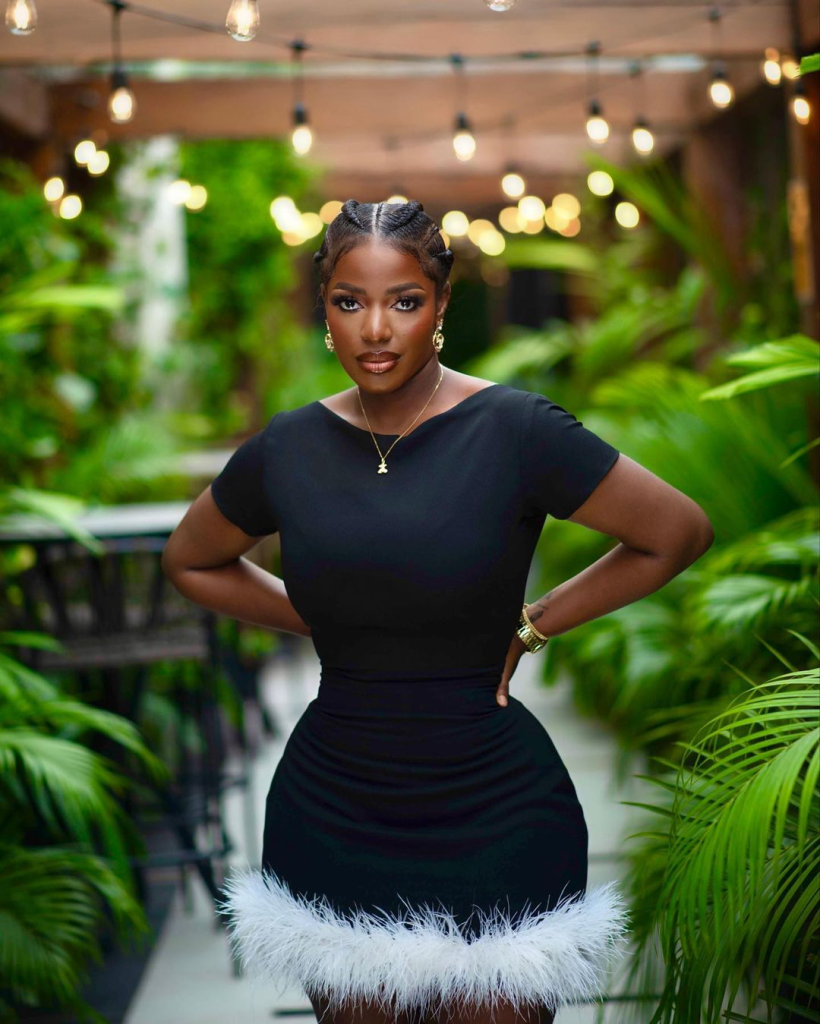
Digging a bit deeper into what her journey looked like, especially as she wears multiple hats, which of her job titles came first? When and how did she get into the food business? “I started out having a strong desire to be a TV presenter and actress; that was even what brought me to Lagos. I came to audition to be a presenter on a couple of TV shows and then got a job at Rave TV at the time to anchor a breakfast show. Because I’ve always been a cook and always liked to cook, someway somehow, in every single thing I do, that aspect of me still shines. During auditioning for the Rave TV competition to look for the new face of Inside Out With Agatha, they put us in a house for some weeks. Basically, in the house, my cooking ability shone. So when I got the job, my goal as a presenter was to anchor the cooking segment of the breakfast show, so I was cooking on TV. Technically, I was doing both (cooking and TV presenting). While doing that, I would still go for acting and TV auditions, so I got gigs here and there during that time. I then got a second job as a cook, handling the lunch division of a breakfast company. At the time, I was cooking for about 200 people every day. So I would work in the TV station, and once I was done, I would go to the kitchen, and I was juggling both jobs at the same time. Eventually, I resigned from the cooking job. At the time, I had gotten an opportunity to have my own show on DStv (Pop Central TV), and it was called Dine on a Budget, which was still, by extension, a cooking show where I hosted celebrities. In between, I was still going for movie auditions. Obviously, something has to pay the bills, so I got a 9-5 in a fashion and retail company.
So then I was freelancing for my show and then working 9-5 for the fashion company where I was the offline manager for about nine months to a year. While doing that, I was still cooking on the side because I kept getting referrals from my friends who ate my food and would always tell other people, and I would always get orders.
I didn’t have any business structure, no brand name, but I was still cooking for people, and they were paying me. So I decided to take it more seriously. I went through something that I don’t want to talk about, but it sort of prompted me to resign from my job, and then I started pursuing my food business more seriously. My brother helped me put together a logo, we came up with the name, opened an Instagram page and everything. That was sometime in 2020. I started by posting all the food I made in my house because then I didn’t have customers online, so it was just my WhatsApp people that ordered from me. But I just kept posting, and with time started getting customers online and my online presence started growing. Then I decided to start an online class while still cooking for people from home. Over time, my biggest problem was that I couldn’t make meals in small quantities because it wasn’t cost-effective when I did the costing, and a lot of people wanted to eat my food on a daily basis, so I kind of knew that a fast food restaurant was in view.
A year and some months into the business, I started looking for a place to open a fast-food restaurant and I did that. My Food By Hilda opened sometime last year, and we’re going to be a year in June. While all this was going on, I was having classes, teaching, and creating content for brands here and there,” she said, painting a vivid picture of her inspiring career trajectory.
Despite having a stable and usually tasking job working in media, a TV station, did she ever envision the progression of her food business from taking WhatsApp orders to climbing up to restaurant level? Hilda’s candid recount would end with the acknowledgement of what little drops of water could someday become, a mighty ocean. “At that time, my vision was very myopic, I just wanted to be glamorous, and this is me speaking candidly and honestly. I wanted to deal with food, but I wanted the glamorous side of it. It is quite difficult being good at multiple things because then again, how do you marry all of them? At the time, I hadn’t envisioned it. The more successful my business gets, the more it has allowed me to see the bigger possibilities because even when I started the business, I didn’t see its potential.
Even when my friends would tell me, ‘Oh, you will do so well,’ I felt like they had not fully grasped it because even I had not grasped how successful I could be because I just always felt that all these big restaurants have to have big money to be able to do what they do. I had not come to the realisation that you can start from somewhere, and little drops of water can take you far. I didn’t envision it; it is just over time, when the business started to get successful, it allowed me to see that I was capable of doing so much more and that I shouldn’t limit my dreams; I should just dream as big as possible so I can work towards it.”
But it is easier said than done. What good thing isn’t? Making a name for one’s self in any sector is no easy feat, much more in an overly saturated food industry where demand almost eclipses supply, especially in the commercial capital of Lagos. Hilda’s rather young boutique restaurant shares the same geography as some of the biggest fine-dining establishments in West Africa—the island area of Lagos, where food and aesthetics go hand in hand at the very top level. What is her X-factor? When asked what sets My Food By Hilda apart from the rest of the fierce competition, she reveals, “This might sound cliché, but it is God’s grace and favour that is the first thing. Secondly, I’m very big on the quality of the food I sell. For me, the recipes that I put out in my restaurant are mine. They are not experimental; I’ve tried them over time and gotten feedback on them before deciding to put them up for sale. My customers are my priority.
As much as there are a lot of food businesses, my vision is I’m constantly thinking about growth.
We already know that there is a perception of young women that look the way I look, so when people hear that you are doing business or own a restaurant, I feel their expectation is always much lower than they now see and experience.

It’s like you’re expecting something that wasn’t so good, and then you come and are impressed with what you see, the food. So they realise how much they underestimated the brand, and it is that space of pleasant surprise that word of mouth starts to spread. My restaurant is small and at the back of a mall, but people still go around to locate it. There was a time it was trending on Tiktok because a lot of people were going, “There’s this really small place, it is really cute and the food is really good.” Word of mouth just starts to spread, and more people are coming to try the food. For us, we try to build consistency so that when they come, they are not disappointed. We don’t always get it right, but that is the beauty of business; you try, fail, and try again. I’m not scared of failing, and I’m not scared to invest in my dreams. One thing about me is I’m very big on investing in my business; I can invest all my funds into it just because I see the potential in it as viable. I’m constantly trying to improve and innovate and try to keep my employees as happy as possible. I pay attention to my staff’s welfare just to make sure that they are taking my business seriously and treating my customers well.”
Hilda’s record-breaking cooking run of 100 hours 40 minutes was more than enough to break the previous record time of 87 hours 45 minutes initially set by Indian superchef, Lata Tondon in Rewa, Central India, in 2019. Chef Lata’s pedigree as the first woman in the world to achieve this feat, as well as the first female chef to enter the Guinness World Record Book, only highlights one of society’s biggest skewed logic. Although cooking conversations have always been gendered, one of the most recurring elements of the perpetual domestication of women, before Lata, all the cooking records had been set by male chefs. And it is not just in marathon cooking. According to statistics, there are more male restaurateurs in the world, and more successful male celebrity chefs than female. All of these not-soshocking facts play in direct contradiction to society’s often condescending mandate of a woman’s place in the kitchen. Despite dominating the food industry at the small and medium scale levels, women throughout history don’t enjoy the same amount of success as their male counterparts do across the globe. Hilda, whose mum is also a food entrepreneur, speaks on this disparity, carefully breaking down a conundrum most people only care about whenever the International Women’s Day comes around every year. “I think it has a lot to do with upbringing because as you said, they would say a woman’s place is in the kitchen. My mother is an exception because I watched her train us from selling food. But while there is the belief that a woman is responsible for cooking and taking care of the home, they have made it seem that for a man to do it, it is a big deal. It is extra. So when a man now approaches it, he is approaching it from a business standpoint. It is just like how women take care of the children all the time, but when you see a video of a man taking care of his child, they will start giving him accolades because society feels like it’s a woman’s job and for a man to be doing it, that makes him exceptional, out of this world. Women never really saw the financial security that was possible with cooking and specialising in this business. We’ve just looked at it like a God-given calling that we have to do. While men look at it as a craft, for women, we’ve just been doing it. But the times are starting to change, and more female chefs are coming into play. It’s a gradual process, which is something I also try to do with my classes because I find that even in the Nigerian food industry, food vendors don’t necessarily regard the service they provide, so because of that, they don’t cost the service properly. And because of that, we don’t have a lot of very successful food vendors in Nigeria, we have sustainable food vendors. We don’t have many successful food vendors that have gone on to become billionaires from cooking. You can have a woman that has been cooking for 10 years, catering to events every Saturday, but cannot necessarily buy herself a house in Bali or pay for exotic trips abroad. But men do this thing and become billionaires from it. I have come to understand that it is because we don’t see the potential in what we have, so more often than not, we are just doing this business, so it will just be that we are doing something. We don’t actually see that this business can pay for the kind of life you want if done right. Some women do the business so they won’t have to be asking their husbands for money for pads, hair and other petty things. No, you can do this business for more than just pad and hair money. You can build capital and then use it to invest in other sectors. You can be into the food business and invest in real estate, and prompt you into financial freedom. But a lot of us don’t know and understand that. I try to teach it in my classes the best possible way I can and try to make people shift their perspective, and not just the food business, especially as a woman. As women, they don’t allow us to shine.
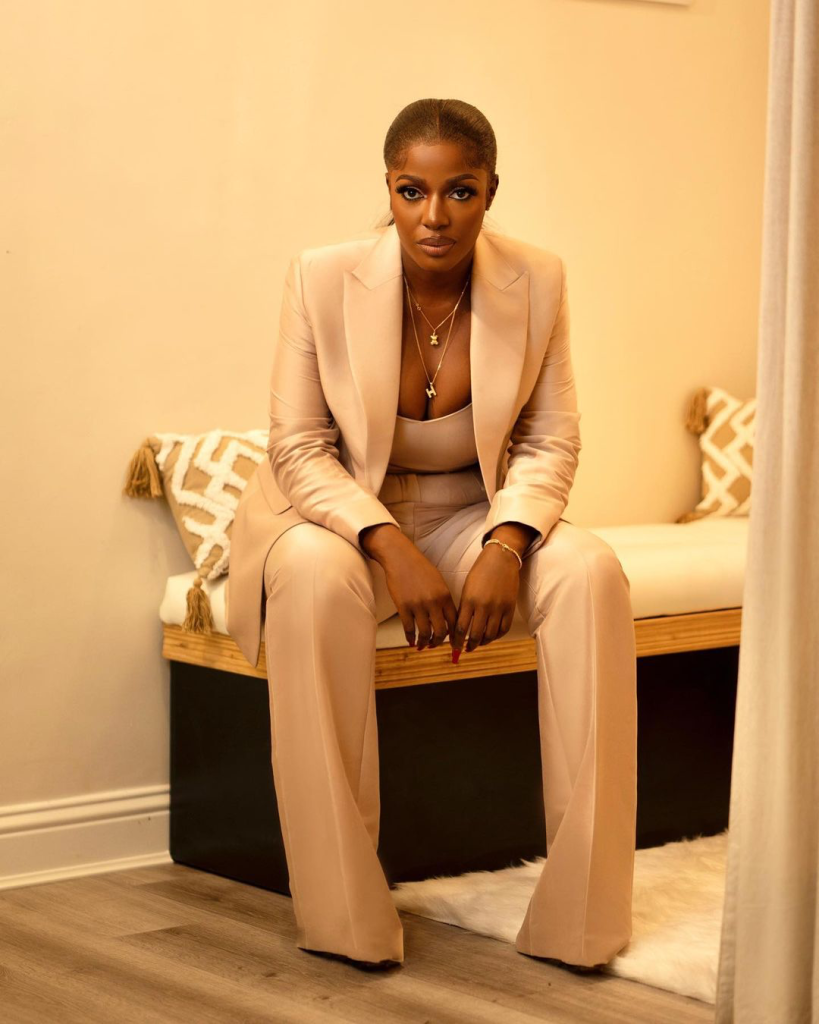
Sometimes, even we don’t allow ourselves to shine to our full potential, that situation and mindset have to change. I can say this from a point of confidence because I didn’t have this confidence when I started. But now, I can see that the opportunities are endless, and I just need to do it well.” Only a few years ago, she couldn’t envision those endless possibilities that her culinary skills afforded her. Now, Hilda devotes time to helping other budding chefs—and even fellow restaurant owners—especially women, elevate their skill and ultimately set them on the path to financial freedom, sharing her coveted recipes along the line—a practice most people in the culinary business are not too comfortable with.
When asked what she aims to achieve with her classes and mentorship programme, she said, “Initially, when I started the classes, eight months into when I opened the business in 2021, it was just to teach people how to cook. But as time went on, with the kinds of questions I had to answer, I realised that costing is a problem; many people don’t know how to cost. So I decided to add it to the curriculum. There is always this narrative we push in this food industry that you can’t share your recipes if you want to make it in the food business; everybody tries to gatekeep.
Meanwhile, I am the exact opposite of gatekeeping; learning new things is exciting because I’m looking forward to sharing that information with others. So that made my classes stand out because I wasn’t hiding anything but sharing everything I know. It has been fascinating because several people have gone on to now have successful online food brands.
Even down to the kind of people that attend the classes, we have restaurant owners that would join to just expand their horizons. Once the response to something you’re doing is that good, you know that you are definitely doing something right. And my goal is to propagate my recipes far and beyond in the course of my existence on earth.”
By far one of the most significant events of the year so far, Hilda’s audacious attempt, and eventual execution, was largely a global affair. Going five days without sleep feels like an insurmountable task. Add to the fact cooking, which for many is an arduous task. Since turning on her cooker at 4 pm on Thursday, May 11, the gourmet chef cooked over 110 different dishes, mostly Nigerian cuisine, through the course of the adrenaline-heavy challenge. Initially billed to last 96 hours, until 4 pm the next Monday, May 15, the boisterous crowd camped outside the venue persuaded her to keep going until she hit the 100-hour mark with the food being handed out to invited guests and the teeming crowd, some who kept vigil watching her. Allowed one assistant at a time, with the liberty of taking a five-minute break each hour, or the equivalent over several hours, this challenge echoed the tenacity and sheer grit she so seamlessly possesses.
Speaking to the media before igniting her cooker, the eventual record-setter said, “This attempt is proof of the strength young people can exhibit with the right platform and support.” She would end up showing visible signs of physical exertion, getting cold compresses applied to her head, foot massages, and the help of a dedicated medical assistant who checked her vital signs during her breaks. Hilda revealed her preparations, “The preparation was hectic. As far as physical stamina goes, I built that by going to the gym. For spiritual support, we prayed a lot. I worked with a therapist because I knew it was going to be very a mental exercise. My friends were very supportive, and my followers too. The support has been incredible. Even for those who just heard about it on social media, I can’t even downplay it.
The positive response from the minute we made the announcement has been so good, even during the 24-hour dry run, it’s been great, and I am really grateful and happy about it.”
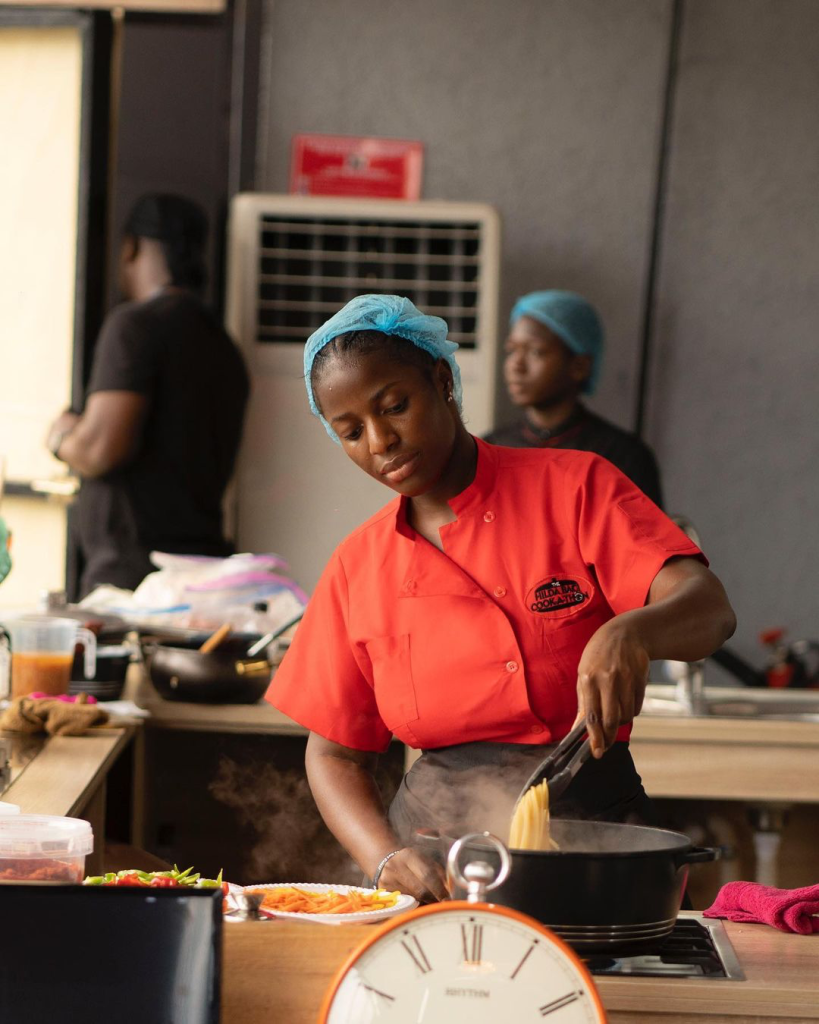
The deed is done, the impossible has been made possible, and we have a new world record for a cooking marathon. Only a matter of time now before official acknowledgement arrives from the record keepers, the Guinness World Record team. But what if? Nigerians could not bear the thought of another heartbreak akin to the allegedly stolen mandate in the political landscape. What if the cook-a-thon was not validated by the regulating body? Hilda responded in defiance, shedding more light to some of the measures taken to ensure that they played by the book throughout the experience.
“To me, my record has been validated. What is coming is the certificate, just a certification. Do you see what we have done? This is everywhere. People are talking about Nigeria from countries that we did not even know existed. It has gone way beyond the certificate. We did every single thing by the book and made sure that we left absolutely no stone unturned when we looked at the guidelines.
We got the timekeepers, we measured every single meal that was made, measured the yields, counted the numbers, and we have all the statistics and documentation. It wasn’t child’s play, it was a very deliberate attempt, and we put in the work. We were live (Instagram livestream) the entire time, so if there was anybody that had the time and watched it from day one till day five, you know that we did it,” she said, assuredly.
In the midst of the global applause and an overzealous audience expecting the regulating body’s stamp of approval, news broke of a famous Liberian chef embarking on a similar journey to break Hilda’s newly-set record.
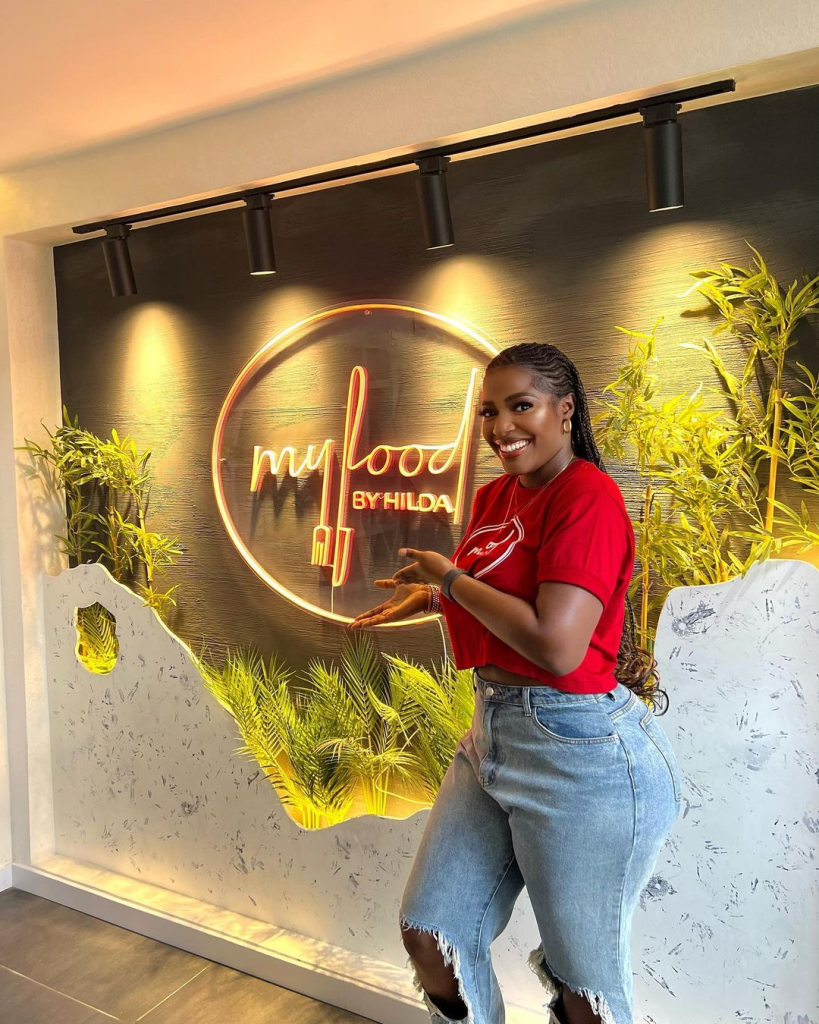
Responding to this breaking story, Hilda weighed in. “I’ve done it, he should try it. And I didn’t do this to say, ‘nobody else…’ You do 100 so that somebody else will do 110. That person that does 110 does it so that the next person will do 150, and we will just keep increasing the number and seeing how far we can go and expanding on what we are capable of. Maybe before now, nobody knew that it was possible to stand for a hundred hours cooking, but because somebody has done it, it means it is possible and doable. One of the major reasons why we were so intentional with filming the entire process was when I wanted to attempt it, I went online to find videos of the previous chef that did it and could only find two to three videos. One of the reasons why I did not know that I could sit, despite the fact that Guinness did not ask me to stand, was that in the few videos I saw, she was standing. Only after the attempt did I find a clip on Twitter where she was sitting, and that was when we realised I could have sat. I knew that somebody else would want to do this after I had done it, so I want to give you the template, I need you to see what it takes, that it is not beans or child’s play, so you know what you’re getting yourself into. If you do it, by all means, I wish you all the best. I have done it, and I’m happy for where it has gotten me, and I pray that it does you the same or even better.”
Hilda’s is an inspiring story.
One that symbolises hope and rewards hardwork so glaringly. At a time when the country is going through so much uncertainty and its youth are getting dealt an unfair hand in terms of just how much say the system has on their dreams and ambitions.
From winning Jollof Faceoff and upholding the Nigerian jollof supremacy, to achieving something that has never been achieved in human history, Hilda’s upward trajectory is a thing of beauty, one that has caught the attention of millions of eyes now already invested in her next move. She answers the inevitable ‘what next?’ question rather graciously. “You know the funny thing is, that “what next?” is one of the things that gives me anxiety because when you do something like this and then there’s this much attention on you, everybody is waiting for the next thing that you’re about to do.
Everybody expects that the next thing you’re going to do has to be bigger than the last thing that you have done. But I’ve made a conscious effort to tell myself that this was a means to an end. There were reasons why I decided to do this. Before now, I own a restaurant, I teach, and one of my biggest goals is I want Nigerian recipes to be propagated across the world. I want it to be a normal thing to cook egusi soup in an American home, I want you to be able to walk into any random supermarket and find Nigerian ingredients, not have to travel hours to one African store to find just a couple of ingredients. Now, the only way we are going to be able to achieve that is if the demand for it increases, because if it does, it means that there is now a market there and people will feel that “okay, I need to start cultivating egusi in Atlanta, I need to start planting wild spinach—that is okazi—in the UK.” By doing this cook-a-thon, more people will be interested in Nigerian recipes, but this is not the only thing I have to do, it means I still have to teach more people how to cook Nigerian food. Hopefully, it means more people will be interested in learning how to make these meals that I made during the cook-athon, so it still helps me to achieve my goal. I want to expand my restaurant. I was already in the process of setting the motion to expand my restaurant, opening up for investors to come in and franchise for other countries in other parts of the world as well because I’m trying to create jobs. Now, everybody wants to work in an oil company because there are so many perks. I always tell my staff members that very soon, it will be a big deal to be working at My Food By Hilda because the perks are going to be so good.”
Throughout her interaction with everyone that cared to listen, the sensational chef’s message was clear.
A message to society that draws a faux connection between a woman’s beauty and her brain as though one inhibits the other. “You can be smart, successful and sexy,” the Guinness World Record holder avouched.

Self-identifies as a middle child between millennials and the gen Z, began writing as a 14 year-old. Born and raised in Lagos where he would go on to obtain a degree in the University of Lagos, he mainly draws inspiration from societal issues and the ills within. His "live and let live" mantra shapes his thought process as he writes about lifestyle from a place of empathy and emotional intelligence. When he is not writing, he is very invested in football and sociopolitical commentary on social media.




